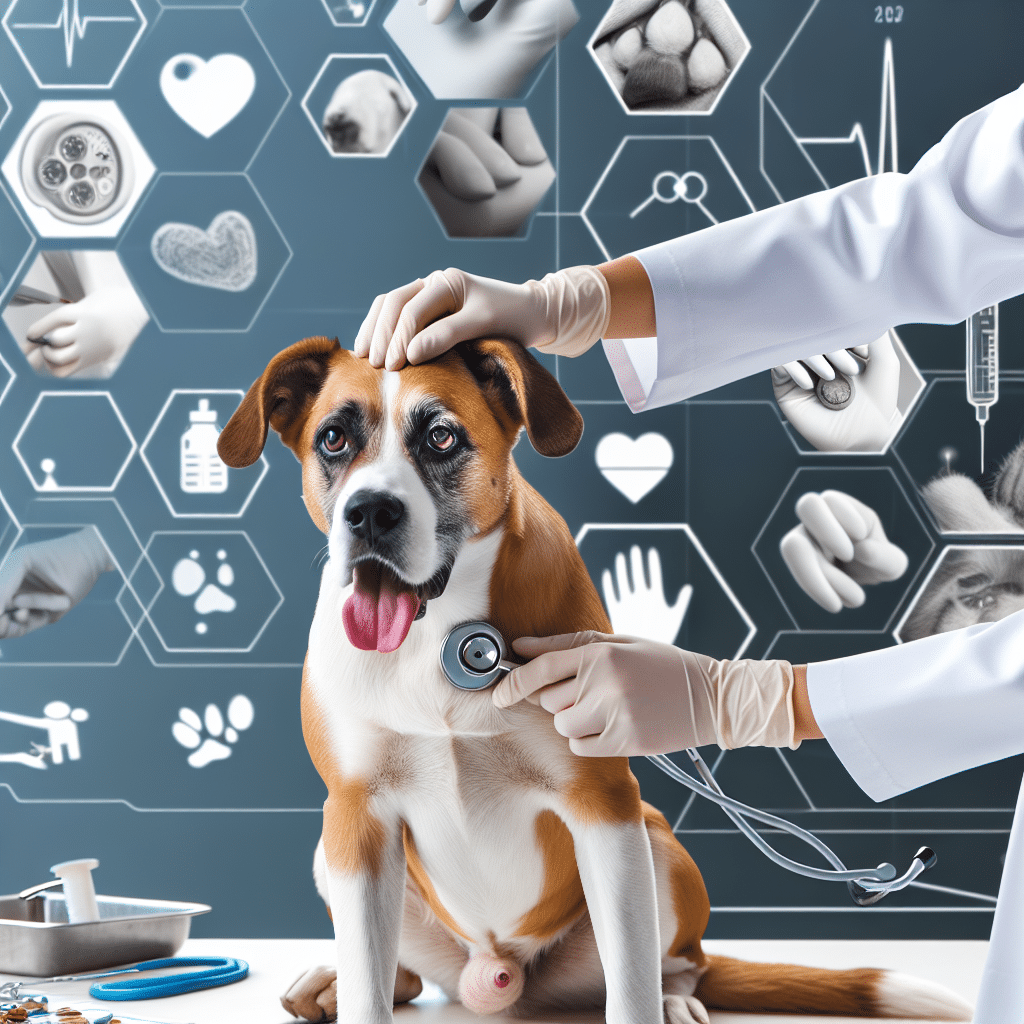Understanding the Importance of Regular Vet Check-Ups for Dogs
As a responsible dog owner, prioritizing your canine companion’s health is paramount. Regular veterinary check-ups play a critical role in maintaining your dog’s overall well-being and ensuring a long, happy life. Here, we explore the significance of these routine visits, addressing key aspects to help you understand their necessity.
Early Detection of Health Issues
One of the most compelling reasons for regular vet check-ups is the early detection of potential health problems. Many diseases in dogs can progress silently. During a vet visit, professionals conduct thorough examinations that may reveal underlying issues that you might not have noticed at home.
For instance, conditions such as kidney disease, dental problems, or heart disease can go unnoticed in their early stages. A veterinarian can spot subtle changes in your dog’s health trajectory through blood tests, physical examinations, and monitoring vital statistics. Detecting such issues early can lead to more effective treatments and often better outcomes.
Vaccinations and Preventative Care
Regular check-ups are essential for ensuring your dog is up to date on vaccinations. Vaccinations play a pivotal role in preventing diseases like rabies, parvovirus, and distemper—conditions that can be severe or fatal if contracted.
During these visits, veterinarians also provide preventative care, which might include parasite control, dental cleanings, and nutritional guidance. Exploring comprehensive health plans with your vet ensures that you’re taking proactive measures to protect your dog from preventable illnesses.
Maintenance of a Healthy Weight
Obesity is a growing concern among pets, leading to numerous health issues, including diabetes, joint problems, and heart disease. Regular vet visits provide an excellent opportunity to evaluate your dog’s weight and overall physical condition.
Veterinarians can offer guidance on diet and exercise specific to your dog’s breed, age, and activity level. Establishing healthy habits early on is crucial for maintaining your dog’s weight, thereby enhancing their quality of life.
Behavioral Assessments
A vet visit is not solely about physical health; it can also address behavioral concerns. Dogs may exhibit anxiety, aggression, or other behavioral issues due to underlying health problems. Regular veterinary assessments can help identify such triggers and recommend appropriate interventions.
Veterinarians can also offer insight into training resources or behavioral modification techniques that may benefit you and your dog. Understanding the root causes of behavioral changes is essential for ensuring a harmonious relationship between you and your furry friend.
Dental Health Importance
Dental health is often overlooked by pet owners; however, it is a vital aspect of overall canine health. Periodontal disease can lead to severe health issues, including infections that may spread to the heart or kidneys.
During routine check-ups, veterinarians will conduct dental examinations and cleanings, making recommendations suited to your dog’s needs. Investing in your dog’s dental health through regular vet visits can prevent painful conditions and reduce the risk of costly treatments later on.
Tailored Health Plans
Every dog is unique, and so are their health requirements. Regular visits facilitate the creation and adjustment of customized health plans tailored to your dog’s specific needs. Factors such as age, breed, lifestyle, and medical history can all influence the necessary check-up frequency and associated care.
As your dog’s health needs evolve, routine check-ups allow your veterinarian to adapt the care plan accordingly, ensuring your dog receives optimal health support throughout their life stages.
Building a Trust Relationship
Regular check-ups foster familiarity and trust between your dog and the veterinarian. This relationship can be crucial during emergencies or when more serious health issues arise. When dogs have consistent exposure to their vet, they become more comfortable in a clinical environment, reducing stress for both the pet and the owner.
Establishing trust with a vet helps ensure that you will feel confident in the recommendations and treatment plans laid out for your pet, leading to better overall care and receptiveness in your dog.
Financial Considerations
While it might seem like a burden to incur the costs of regular vet visits, it can actually save you money in the long run. Early detection of health issues often leads to less expensive treatment options. Regular check-ups assist in maintaining your dog’s health, which can help avoid costly emergencies and advanced treatments due to neglect.
Moreover, some veterinary clinics offer wellness plans that spread the cost of routine care throughout the year, making it accessible and manageable for pet owners.
Lifespan and Overall Quality of Life
Routine vet check-ups directly correlate with your dog’s lifespan and quality of life. Studies have shown that preventive care can extend the lifespan of pets significantly. Regular visits ensure your dog remains in optimal health, allowing them to enjoy a longer, more active life.
Moreover, a healthy dog is often happier and engages better in activities with their owners, improving emotional bonds.
Final Thoughts on Regular Vet Check-Ups
Incorporating regular veterinary check-ups into your dog care routine serves numerous beneficial purposes—from early disease detection and prevention to personalized health planning and improved quality of life. By focusing on regular vet visits, owners not only safeguard their pets’ health but can also enjoy a fulfilling and enriching relationship for years to come.
Taking these proactive steps reflects a commitment to your beloved companion’s health and happiness, making regular veterinary check-ups a crucial part of responsible dog ownership.
